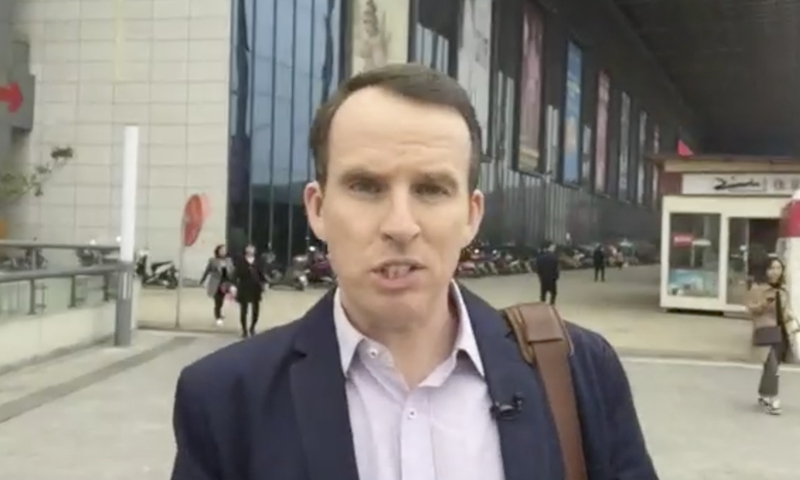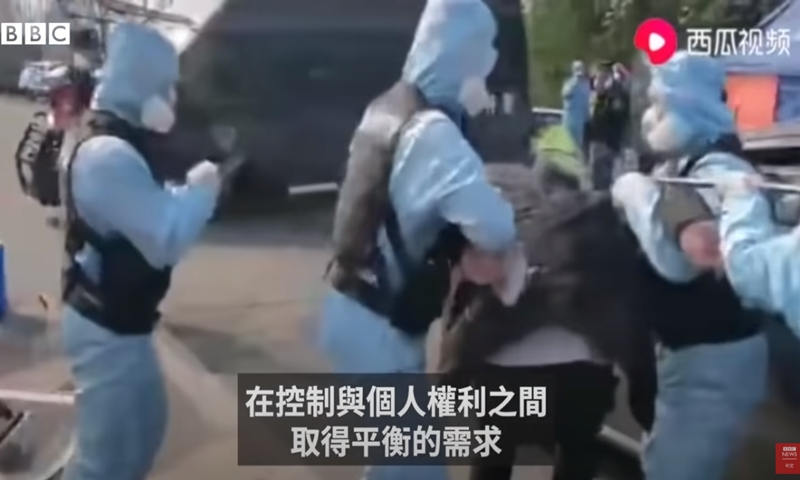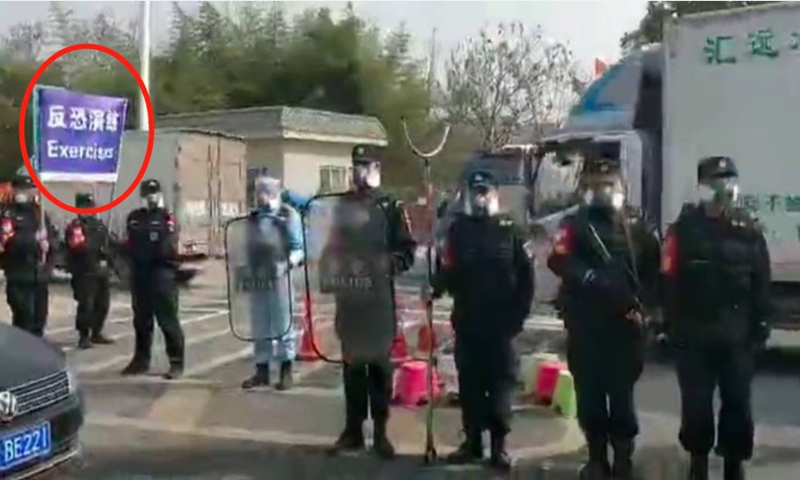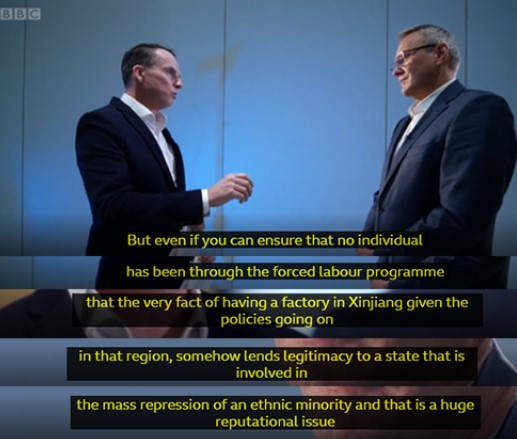
File photo of John Sudworth
BBC's Beijing correspondent John Sudworth, who became infamous in China for his many biased stories distorting China's Xinjiang policies and COVID-19 responses, has left the Chinese mainland and is now believed to be hiding in Taiwan island after Xinjiang individuals said they plan to sue BBC for fake news, sources told the Global Times.
From stigmatizing China as being the origin of the novel coronavirus to claiming Xinjiang's cotton was "tainted," Sudworth has participated in many of BBC's notorious reports attacking China in recent years.
Sudworth's biased reporting started in as early as 2017 when he attacked China's Skynet Project, which actually contributed to maintaining the low crime rate in Chinese society.
During his interview with police in Guiyang, Southwest China's Guizhou Province, which was carried out under the name of reporting China's high-tech equipment, he uploaded his facial information to the Skynet Project's "blacklist" and his face was identified seven minutes later. He then twisted his story by concluding that the system was used not to hunt criminals, but to "suppress anti-government voices and monitor dissidents."
His coverage of the COVID-19 epidemic and the Xinjiang policy was also full of smears.
When interviewing World Health Organization (WHO) China representative Gauden Galea in March 2020, he asked questions in a misleading way while ignoring WHO's recognition of China's efforts in controlling the epidemic. When Galea caught on to his trick, Sudworth tried to pin the blame on China for the global epidemic by editing the interview out of context.
Before WHO's international experts came to China for a joint study in January, he put pressure on WHO experts and maliciously incited hostility from the international community to China.

Screenshot of the BBC video which falsely labeled an anti-terrorism drill as “human rights violations by China's anti-epidemic authorities.”

Banner held by police officers shows that the event was in fact an anti-terrorism drill.
In another report, he posted footage, claiming to be evidence of "violent law enforcement and human rights violations by China's anti-epidemic authorities." But in fact the footage was from a previous anti-terrorism drill. His poor handling of the video proved the story had been fabricated.
He also tried his best to throw mud at China's Xinjiang policy.
In his report on the vocational education training centers in Xinjiang in 2019, he shot an iron gate and fence for his story, and then used horror film music and depressing filters to deliberately create a dark atmosphere. During an interview, he stigmatized the training centers as "re-education camps."

Screenshot of Sudworth's interview with Stephan Wollenstein, CEO of Volkswagen Group China, during which he raised biased questions
In November 2020, Sudworth repeated the same technique by questioning the head of Volkswagen China – the company’s CEO in China, Stephan Wollenstein – in the style of an interrogation. After Wollenstein said, “This is something that we specifically checked in Urumqi and I can assure you, we do not have forced labor,” Sudworth offered a bizarre argument: "Whenever you have a factory in Xinjiang, no matter where the workers are from, they are helping the Chinese government persecute Uygurs.” He also cited the World War II, comparing free and hard-working Uygur workers to Jews who were subjected to forced labor by the Nazis, and pressed the interviewee on why the company still had not left Xinjiang.
In December 2020, Sudworth took part in the production of the BBC Xinjiang-related report "China's tainted cotton," which declared the existence of "forced labor" in the cotton industry in Xinjiang, despite the fact that machine picking had already become widespread rather than the extensive use of manual labor, a fact that Chinese officials have clarified repeatedly.
Chinese observers said the report shows that Sudworth intended to smear Xinjiang and attempted to disrupt the region's industrial chain so that he could win an award as a human rights defender and gain fame.
As a reporter from an established Western media outlet, Sudworth unscrupulously spreads rumors and slanders against China and thought there is no way for the Chinese to get him as a foreign journalist, but he forgot that China is a country under the rule of law and there is a cost for spreading rumors, observers said.
A number of individuals in Xinjiang plan to sue BBC for producing fake news, spreading rumors about Xinjiang and slandering China's policy in the region, Xu Guixiang, deputy director of the publicity department of the Communist Party of China Xinjiang Uygur Autonomous Region Committee, said at a Xinjiang-related press conference held by the Chinese Foreign Ministry in Beijing on March 18.
Under the cover of so-called "freedom of the press" and without investigation and verification, the BBC followed the trend and quoted the so-called Xinjiang-related "research report" by pseudo-scholar Adrian Zenz, producing and broadcasting fake news, making irresponsible remarks on Xinjiang-related policies, and spreading rumors and slander, Xu said, noting that the British media outlet has become a platform for the dissemination of Zenz's lies about Xinjiang.
Chinese observers predicted that Sudworth may portray himself as suffering "political persecution" and paint himself as a "hero" of Western anti-China opinions who was forced to leave because of his persistence in seeking "justice."
However, no matter where he flees to and in what capacity he reports on China, as long as he continues to adhere to ideological bias and continues to churn out false news to attack and smear China, he will not be able to escape righteous condemnation, they said.
Global Times







